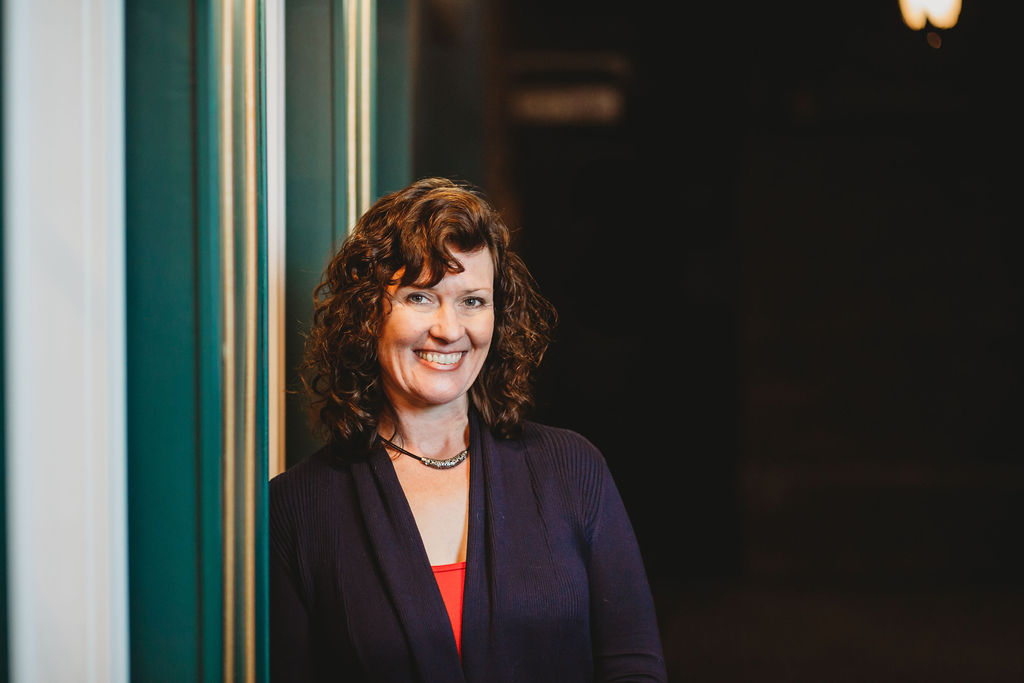Are you a Wisconsin woman challenged in sourcing capital for your small business? You’re not alone.
The Office of Business & Entrepreneurship (OBE) historically finds fewer women entrepreneurs get capital and overall receive smaller amounts compared to men. In 2022, 47.5% of OBE women clients received capital vs 49.6% of men, with women receiving $63.8M in total compared to men’s $142M.
What is the Capital Readiness Program?

With the assistance of a grant from the Minority Business Development Agency, OBE is on a mission to help women entrepreneurs get access to more capital. We have completed research surveys with women entrepreneurs and focus groups with investors, lenders, and other stakeholders to help us identify particular needs for women-owned businesses.
OBE has created an innovative curriculum based on these findings in four customized tracks:
- Early Stage Business
- Food/Ag Businesses
- Growth Stage Business
- Tech/Innovation Businesses
This curriculum is tailored to women entrepreneurs and includes modules on building financial acumen, an in-depth study of business finances (including personalized assessments); special interest topics for women (communication skills, gender bias issues); business mentorship based on participant need; and concludes with a company pitch event to lenders and investors specially chosen to best meet the circumstances of each cohort.
Upcoming Programs:
- Spring 2026: Early Stage
- Spring 2026: Growth Stage
- Spring 2026: Tech/Innovation
- The Food/Ag cohort will be running two cohorts starting Nov. 30th—applications accepted now.
Contact Lora Bray to learn more about the upcoming training opportunites.

Lora Bray, Strategic Projects Program Manager
Do you have questions about the program? Reach out to Lora by filling out the form below.
Check out the most recent curriculum outlines:
Early Curriculum (Spring 2026)
| Week | Date | Lesson/Chapters | Instructor |
|---|---|---|---|
| 1 | 1/6 Tuesday | Introduction to CRP/Personal Finances | Cartoon Vue/ Michail Walker |
| 2 | 1/13 Tuesday | Building Financial Acumen | Wendy Potratz |
| 3 | 1/20 Tuesday | A Focus on Cash Flow & Creating Financial Projections | Wendy Potratz |
| 4 | 1/27 Tuesday | Understanding Capital Stack | Michail Walker |
| 5 | 2/3 Tuesday | Customer Segments | Kelly Berry |
| 6 | 2/10 Tuesday | Pricing Models | Michail Walker |
| 7 | 2/16 Monday | Key Components of the Pitch | Paula Houlihan |
| 2/20 Friday | Creating Your Pitch Slide Deck | Andi Gretzinger | |
| 8 | 2/24 Tuesday | Turning Financial Data into Strategic Action | Wendy Potratz |
| 9 | 3/3 Tuesday | Slide Pitch Deck Review | Paula Houlihan |
| 3/4 Wednesday | Building Confidence | Jen Adamski | |
| 10 | 3/10 Tuesday | Pitch Practice | Paula Houlihan |
| 11 | 3/17 Tuesday | Pitch Event – Virtual | Paula Houlihan |
Growth Curriculum (Spring 2026)
| Week | Date | Lesson/Chapters | Instructor |
|---|---|---|---|
| 1 | 1/8 Thursday | Introduction to CRP/Personal Finances | Cartoon Vue/ Jenifer Zurfluh |
| 2 | 1/15 Thursday | Customer Segments | Melissa Meschke |
| 3 | 1/22 Thursday | Pricing Models | Melissa Meschke |
| 4 | 1/29 Thursday | Building Financial Acumen | Ada Duffey |
| 5 | 2/5 Thursday | Understanding Capital Stack | Jenifer Zurfluh |
| 6 | 2/12 Thursday | A Focus on Cash Flow & Creating Financial Projections | Ada Duffey |
| 7 | 2/18 Wednesday | Key Components of the Pitch | Paula Houlihan |
| 2/20 Friday | Creating Your Pitch Slide Deck | Andi Gretzinger | |
| 8 | 2/26 Thursday | Turning Financial Data into Strategic Action | Ada Duffey |
| 9 | 3/4 Wednesday | Building Confidence | Jen Adamski |
| 3/5 Thursday | Pitch Slide Deck Review | Paula Houlihan | |
| 10 | 3/12 Thursday | Pitch Practice | Paula Houlihan |
| 11 | 3/19 Thursday | Pitch Event – Virtual | Paula Houlihan |
Tech/Innovation Curriculum (Fall 2025)
| Week | Date | Lesson/Chapters | Instructor |
|---|---|---|---|
| 1 | 9/30 Tuesday | Introduction to CRP | Anya Hanson |
| 2 | 10/7 Tuesday | Prepare Your Pitch | Brian Walsh |
| 3 | 10/14 Tuesday | SBIR Accounting, Taxes, and HR | Chelsea Stanton |
| 4 | 10/21 Tuesday | Business Hypotheses and the Scientific Method | Todd Strother |
| 5 | 10/28 Tuesday | How to Talk to Investors | Heather Wentler |
| 6 | 11/4 Tuesday | Program Manager Panel | Anya Hanson |
| 7 | 11/11 Tuesday | Investor Panel | Anya Hanson |
| 8 | 11/18 Tuesday | Practice Your Pitch | Brian Walsh |
| 9 | 11/25 Tuesday | Pitch Event – Virtual | Anya Hanson |
Food/Ag Curriculum (Fall 2025)
| Week | Date | Lesson/Chapters | Instructor |
|---|---|---|---|
| 1 | 11/4 Tuesday 11/5 Wednesday | Introduction to CRP | Anna Thomas |
| 2 | 11/11 Tuesday 11/12 Wednesday | Business Model, Market Segmentation, Personal Finance | Anna Thomas |
| 3 | 11/18 Tuesday 11/19 Wednesday | Financial Statement Review, Accounting Systems | Anna Thomas |
| 4 | Thanksgiving Break | Individual Coaching Sessions | Anna Thomas |
| 5 | 12/2 Tuesday 12/3 Wednesday | Costing, Pricing, and Sales Channels | Anna Thomas |
| 6 | 12/9 Tuesday 12/10 Wednesday | Cash Flow & Financial Projections | Anna Thomas |
| 7 | 12/16 Tuesday 12/17 Wednesday | Sources & Uses, Grants, Debt Financing | Anna Thomas |
| 8 / 9 | Holiday Break | Individual Coaching Sessions | Anna Thomas |
| 10 | 1/6 Tuesday 1/7 Wednesday | Capital Stack, Equity Investment | Anna Thomas |
| 11 | 1/13 Tuesday 1/14 Wednesday | Intro to the Pitch Deck | Anna Thomas |
| 12 | 1/21 Wednesday 1/21 Wednesday | Real Entrepreneur Stories | Anna Thomas |
| 13 | 1/27 Tuesday 1/28 Wednesday | Pitch Practice | Anna Thomas |
| 14 | 2/3 Tuesday 2/4 Wednesday | Optional Coaching Session | Anna Thomas |
| Early February | In person pitches and celebration in Madison, WI | Anna Thomas |
Find out more about the Capital Readiness Program and its need by reviewing the below reports provided by WIPPS (Wisconsin Institute for Public Policy and Service) Research Partners:
Check out our webinar from March 25, 2024 to learn more and get YOUR common questions answered:
Contact Lora if you would like to receive an intake form to schedule a discussion and learn more about participating in the program.


